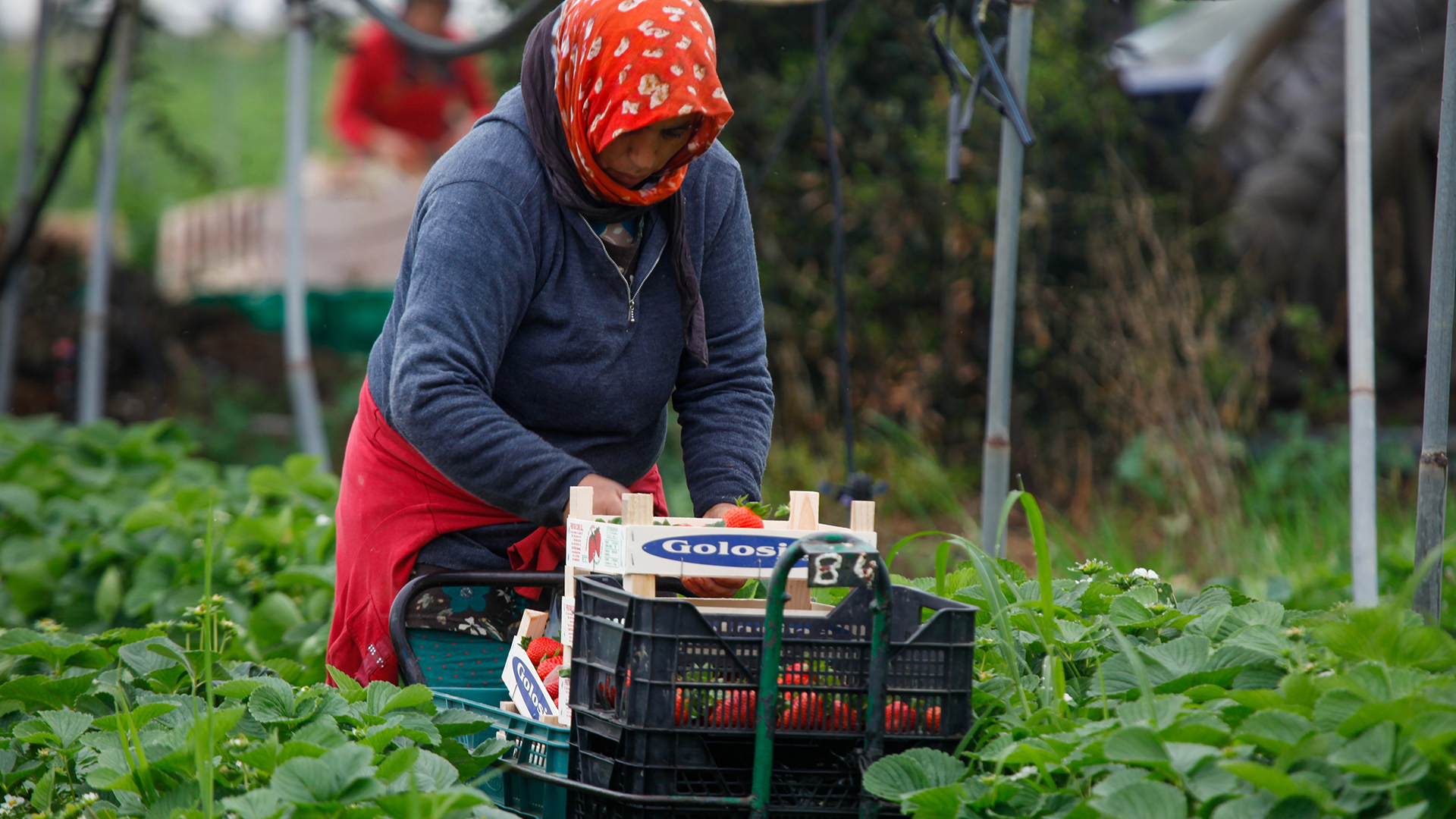
Hard working conditions “Bitter” strawberries from Spain
Status: 10.06.2021 10:56 a.m. The seasonal workers on site receive only a fraction of the price paid in Germany for strawberries from Spain. The strawberry farmers say: The supermarkets are pushing the price. By Reinhard Spiegelhauer, ARD studio Madrid Strawberries as far as the eye can see and an intense fragrance that is so strong that it is almost unpleasant. A small refrigerated truck is parked on the way between the fields. Two dozen of a good 100,000 seasonal workers stand between the green beds, pecking the bright red fruits during the season. “It’s difficult in Morocco,” says the single mother Fatima. As a harvest helper, the Moroccan receives the equivalent of only six and a half euros per day in her home country – over 40 in Spain. Fatima canceled the agreed on-site interview that morning. She answers the questions via voicemail. Because her boss told her she couldn’t just talk to journalists.
“We don’t know what our wages are”
Is there any other pressure? Yes, she says, anyone who collects a battered strawberry will be sent home or even not allowed to work for a whole day.
We don’t even know what the wages are. Some say 42 euros, others 40 euros. “No, no,” says Manuel Reina from the farmers’ association in the shadow of the refrigerated truck. Everyone would be treated properly. The strawberry farmers even provided free apartments:
If individuals do not adhere to the guidelines, then it’s like in politics, the police or administration. A few black sheep cannot be used to identify the entire province of Huelva.  A Moroccan harvest worker harvesting strawberries in Cartaya, archive image. Image: Julian Perez / EPA-EFE / Shutterstoc
A Moroccan harvest worker harvesting strawberries in Cartaya, archive image. Image: Julian Perez / EPA-EFE / Shutterstoc
Union speaks of exploitation
Trade unionist José Antonio Brazo from the Andalusian Workers’ Union frowns. A few kilometers further on, from a railway embankment, he looks out over the endless sea of greenhouses. Silvery shiny plastic film to the horizon. The collective wage is systematically not paid, says Brazo. “We’re talking about exploitation here. In every village here there is a figure of Mary who is venerated – but in reality everyone worships the mammon.” In fact, a study by the Löning sustainability consultancy in Berlin found that harvest workers are often poorly paid.
Study: Supermarkets’ price dictation
Manuel Reina from the farmers’ association defends himself: Actually, the farmers are the “pinched” ones. You take all the risk, he complains. They would have to advance everything and would not get a reasonable price for their product. Farmers hardly see anything of what consumers pay for. One to one and a half euros per kilo of strawberries that went over the counter in the supermarket for six euros. The price dictation is also discussed in the Berlin study. For trade unionist José Antonio Brazo it is clear:
The red fruits, the strawberries, they are no longer sweet, but bitter.





























































You must log in to post a comment.